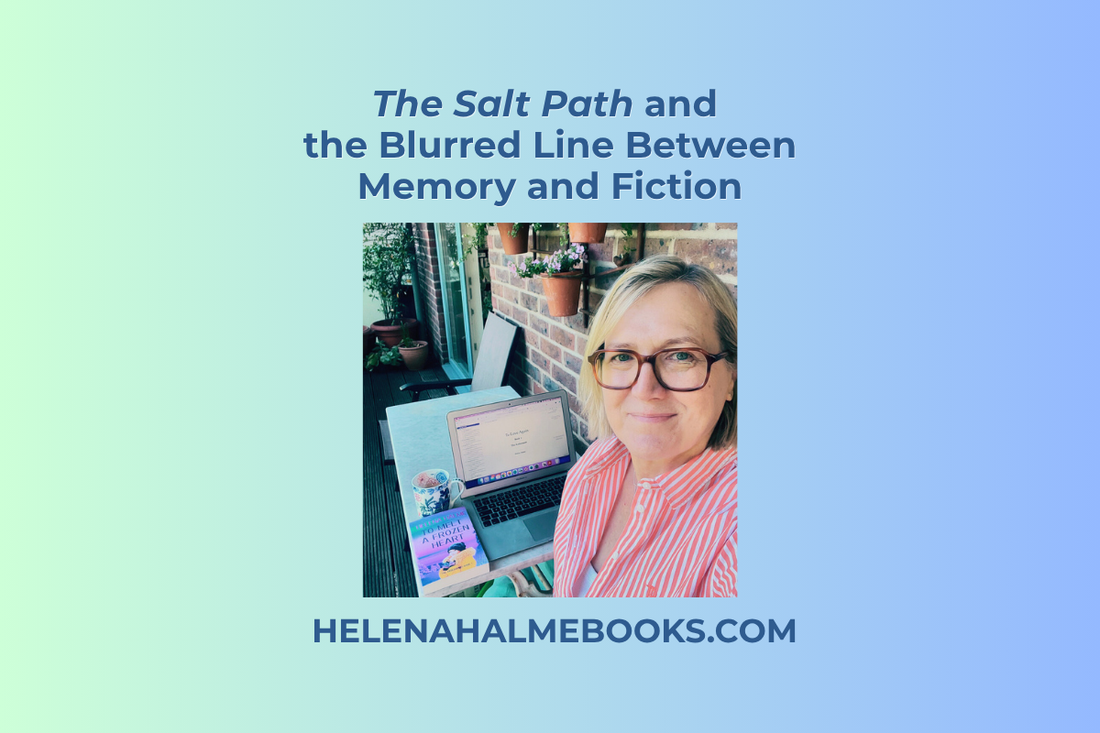
The Salt Path and the Blurred Line Between Memory and Fiction
Share
I’ve drawn on my own life in several of my novels. The English Heart, which tells the story of how I fell in love with and married a British Naval Officer, is the most true-to-life. Coffee and Vodka, on the other hand, is a heavily fictionalised account of my family’s move from Tampere, Finland, to Stockholm, Sweden. The cultural shock we all experienced during that time was profound—and it became a central theme of the novel.
I’ve even written a non-fiction guide, Write Your Story: Turn Your Life into Fiction in 10 Easy Steps, where I explore how personal experience can inspire fiction—or even become the heart of it.
So when my hairdresser recently asked, “As a writer, what do you think about The Salt Path and Raynor Winn?” I knew exactly what he meant. Like many readers and writers, I’ve been following the recent controversy surrounding the bestselling memoir with fascination—and unease.
For those unfamiliar, The Salt Path tells the story of how Winn and her husband, Moth, lost their home and decided to walk the South West Coast Path, all while facing his diagnosis of a terminal illness. The book became a sensation—a poetic, raw, and deeply moving meditation on resilience, nature, and love.
But now, questions have emerged. News reports suggest that certain aspects of the memoir may not have been entirely accurate. Critics argue that details about Moth’s illness and the couple’s financial situation were either misremembered or misrepresented. Readers who once found the story uplifting now wonder if they were misled.
These developments have reignited an old debate: how much truth does a memoir owe its readers?
In Write Your Story, I quote the Nobel Prize–winning author Doris Lessing, who often drew on her own life in her work. In one of her autobiographies, she reflects that no memoir can be fully trusted—not because writers are dishonest, but because memory itself is inherently unreliable. Over time, even the most vivid events become coloured by emotion, influenced by photographs, stories, and the perspectives of others.
Psychological studies support this. Ask several people to describe the same event—a car crash, a heated argument, a wedding—and you’ll get as many different versions as there are witnesses. So when a memoirist sets out to tell the story of their life, what exactly are they offering us? A record of fact? An emotional truth? A narrative shaped by time, grief, love, or hope?
Perhaps the discomfort surrounding The Salt Path arises from our expectations. Memoir readers trust that what they’re reading is, if not precise in detail, at least honest in spirit. When that trust is broken, the fallout can be brutal—not just for the writer, but for the genre itself.
I haven't written a memoir, and to be quite honest, I'm a little frightened of ever doing so, because I know that the temptation of dramatising events, or smoothing out unpleasant details, would be too great.
What this affair has reminded me is how complex—and deeply personal—the act of writing from life can be. Whether you're crafting fiction, memoir, or something in between, intention and clarity matter. As writers, we have a responsibility not just to tell good stories, but to be honest about the nature of those stories.
